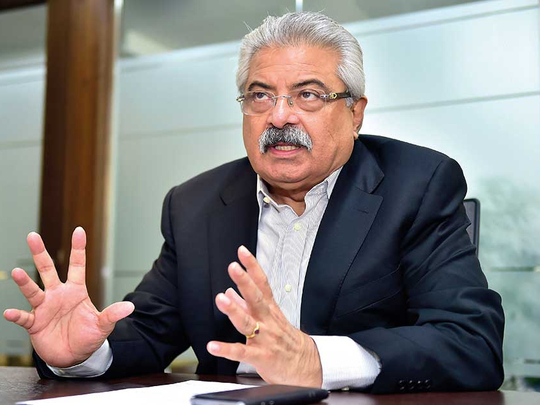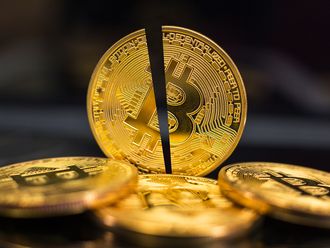
Dubai: The impact of value-added tax (VAT) on consumer electronics will be felt for six to nine months but after that, it will be business as usual, said executive vice-chairman of Eros Group.
Deepak Babani, who was also former CEO of the group, told Gulf News that as the government is promoting tourism and mall culture in the UAE, they need to look into the reimbursement of VAT for tourists as in other countries.
“The current law states that there is no reimbursement and tourists will need to pay 5 per cent tax and which will directly impact the retail business. After a while, consumers will be used to VAT. Despite increasing the parking fees, there is still a shortage of parking space,” he said.
He said the growth in consumer electronics market in the UAE is not going to be dominant as there is no new story to talk about, expect mobile phones.
“For the first time in the last 30 years, I have seen TV sales decline in the UAE last year despite Ramadan and DSF. TV is a number game, computers have been flat and tablets declining. The only sector that is growing is the smartphone segment.
“We can see a spike in sales whenever a new flagship phone is launched but the growth in the category is not able to supplement the fall in other consumer electronics category,” he said.
Babani expects the current downward trend to continue for the next two years and sees growth in the segment when Internet of Things (IoT) become a reality.
“IoT is getting delayed because of lack of a standard format and security concerns, so distributors are not ready to introduce IoT products into the market,” he said.
Weak oil
IoT will become a big category due to convenience and will become a reality in the next two to three years, he said.
Eros expects the UAE consumer electronics industry to remain flat or up to 5 per cent growth due to weak consumer confidence, lack of tourist inflow and weak oil prices.
According to research firm Euromonitor, the UAE market is expected to grow by just 1.69 per cent to Dh12.07 billion this year, from Dh11.87 billion last year. E-commerce is expected to grow by 21.21 per cent to Dh1.59 billion compared to Dh1.32 billion a year ago.
Babani said that e-commerce is growing but 80 per cent of the sales comes from mobile phones and the rest 20 per cent from all other categories combined together.
“Most consumers don’t trust many of the stand-alone e-retailers and we have heard many negative stories about their after sales services. Consumer protection department under the Dubai Department of Economic Development [DED] was not able to control the e-commerce companies as they were operating in free zones,” he said.
Energy-saving specifications
He said that DED is going to tighten the e-commerce regulations and going to introduce Emirates Authority for Standardisation and Metrology (ESMA) norms to match the country’s energy-saving specifications.
“Energy-saving specifications in Europe is different from the UAE. Even though ESMA rules are applicable in the country, it was only for certain products. Now, DED is going to extend it to more products in the future. ESMA is also looking to introduce chips, instead of stickers, to track the specifications from the factory itself to stop the malpractice,” he said.
With VAT coming into play from next year, he said that all retailers’ computers will be hooked on to a central computer to control the VAT payment. While this is implemented, ESMA specifications will come to play a bigger role. So, all e-commerce players will come under the radar.








